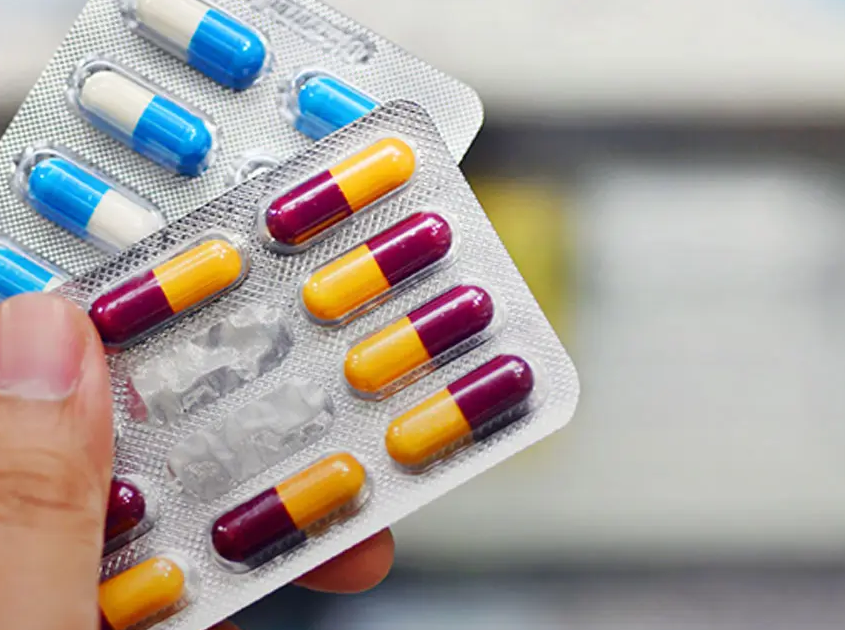Travel Smart: A Complete Guide to Must-Have Medicines for Your Trip

Let’s face it—traveling is amazing, but it can also come with its share of surprises. You’re off to explore new places, try delicious food, and take in exciting experiences. But sometimes, along with all the fun, you also pick up a cold, catch an upset stomach, or suffer from a splitting headache. That’s just life on the road.
When you’re away from home, the last thing you want is to be stuck searching for a pharmacy in a foreign country, possibly in the middle of the night. That’s where your personal travel health kit comes in. Whether you’re heading on a relaxing beach holiday or a backpacking adventure through multiple countries, being prepared with the right medicines can save your trip from turning into a stressful experience.
So let’s break down everything you should carry in your travel medical kit, step by step.
1. Your Daily Prescription Medications
We’ll start with the most important one. If you take medication regularly for any condition—be it high blood pressure, diabetes, asthma, or something else—don’t assume you’ll be able to find the same medicines abroad. Always carry more than you need for the trip duration.
Pack this:
- Enough of your regular prescription meds for the entire trip plus a few extra days
- A copy of your prescription and a doctor’s note (especially for international travel)
- Keep medicines in their original containers
- Pack them in your carry-on, not checked luggage
2. Pain Relief: For Headaches, Muscle Pains, and More
Long flights, uncomfortable beds, or just the strain of sightseeing all day—these can lead to aches and pains. Having a general pain reliever can make a huge difference.
Good options include:
- Paracetamol (acetaminophen) – for headaches or fever
- Ibuprofen – great for inflammation, menstrual cramps, or sore muscles
- Aspirin – also useful for headaches or minor aches (not for kids)
3. Stomach Support: For Digestive Upsets
Let’s be honest. New foods, spicy dishes, or even a change in water can cause your stomach to react. Keep your digestive system calm with a few simple items.
What to pack:
- Antacids (like Tums or Rolaids) – for heartburn or indigestion
- Anti-diarrheal medicine (like Loperamide) – to slow things down quickly
- Oral rehydration salts – for dehydration after diarrhea or vomiting
- Mild laxatives – in case you’re feeling the opposite and need relief
4. Allergy Relief: For Unexpected Reactions
You may not even have allergies at home, but in a new environment, anything from pollen to unfamiliar foods can cause a reaction. Allergies can come out of nowhere, so be prepared.
Useful items:
- Antihistamines (like loratadine or cetirizine) – for itchy eyes, runny nose, or hives
- Hydrocortisone cream – for mild rashes or insect bites
- Epinephrine auto-injector (EpiPen) – if you have severe allergies
5. Cold, Cough and Flu Medications
Travel exposes you to all sorts of germs, especially in crowded places like airports, buses, or tourist spots. A minor cold can feel ten times worse when you’re on the road.
Keep handy:
- Cough drops or throat lozenges
- Decongestants (like pseudoephedrine)
- Nasal sprays (saline or medicated)
- Fever reducers (paracetamol or ibuprofen)
- Vitamin C or zinc supplements (optional but helpful)
6. Motion Sickness: Don’t Let It Ruin the Ride
Boats, mountain roads, long car rides—some people just don’t do well with motion. If that’s you, don’t risk ruining a whole day feeling queasy.
Options include:
- Dimenhydrinate (Dramamine) – works for most people
- Scopolamine patches – long-lasting, but requires a prescription
- Ginger tablets – natural and effective for some
- Sea-Bands – pressure-point wristbands for nausea relief
7. Minor First Aid Essentials
Blisters from walking all day? A scraped knee from hiking? Small accidents can happen. Your first aid kit should cover the basics so you don’t have to hunt down a pharmacy.
What to include:
- Adhesive bandages (Band-Aids) in different sizes
- Antiseptic wipes or spray
- Gauze pads and adhesive tape
- Tweezers (for splinters or ticks)
- Small scissors
- Instant cold pack
8. Insect Protection and Bite Relief
Mosquitoes aren’t just annoying—they can also spread diseases in certain regions. Protect yourself before you get bitten, and also pack something to ease the itch if they find you anyway.
What to bring:
- Insect repellent (with DEET or Picaridin)
- After-bite itch relief cream
- Mosquito net (for places with malaria or dengue)
- Anti-itch lotion (like calamine)
9. Sun Safety and Burn Relief
The sun can sneak up on you—even on cloudy days or cooler destinations. It’s better to be over prepared than to suffer from sunburn during your trip.
Don’t forget:
- Broad-spectrum sunscreen (SPF 30 or higher)
- Lip balm with SPF
- After-sun aloe vera gel
- Sunglasses and a wide-brimmed hat
10. Other Good-to-Have Medications
Depending on your destination and health profile, there might be other medications worth adding to your kit.
Examples:
- Sleeping aids (melatonin or antihistamines for jet lag)
- Antifungal cream (for athlete’s foot or rashes)
- Eye drops (for dryness from flying or dusty areas)
- Antimalarial drugs (prescription-only, needed in some regions)
- Antibiotics (if advised by your doctor for traveler’s diarrhea or UTIs)
11. Extra Tips for a Stress-Free Travel Health Kit
Now that you’ve got your list, here are a few final tips to make sure your travel medical kit is truly helpful when you need it:
Helpful advice:
- Keep medicines in your carry-on luggage
- Use a clear plastic pouch or labeled box for easy access
- Check expiry dates before you pack
- Review travel health advice specific to your destination
- Don’t forget travel insurance that covers medical expenses
To summarize, you might never need to open your travel medical kit—but when you do, you’ll be glad you packed it. From headaches and heartburn to cuts and allergies, these essentials can help you stay healthy and worry-free on the road. Preparing ahead gives you peace of mind so you can fully enjoy your journey. It doesn’t take much space, but it can save you a lot of time, discomfort, and even money. So before you zip up your bag, give your health kit a proper check. Safe travels!
post

Lifestyle ≠ 02 March
Fashion and Wellness: How What You Wear Can Affect Your Health

Lifestyle ≠ 02 March
Future of Fashion: Exploring the Role of AI and Virtual Reality in Style

Lifestyle ≠ 02 March
The Intersection of Fashion and Music: Style Influences from Iconic Artists

Lifestyle ≠ 02 March

Lifestyle ≠ 02 March
Previous Post
No Previous blog available.
Next Post
Travel March 02
Best Travel Apps You Need Before Your Next Trip
